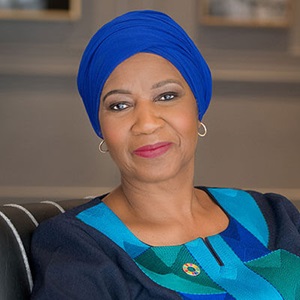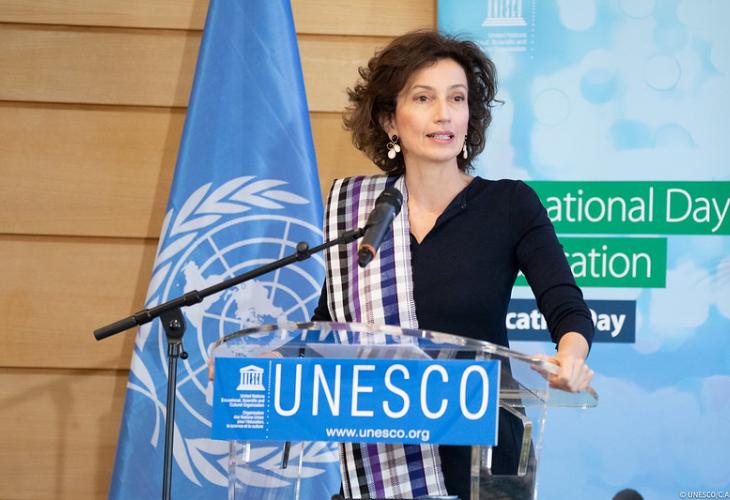Today, the world celebrates International Day of Women and Girls in Science.
Organised by UNESCO and UN Women, the event aims to promote women and girls in science. This day is a reminder that women and girls play a critical role in science and technology communities and that their participation should be strengthened. This year’s event celebrates women scientists at the forefront of the fight against Covid-19.
Women have led ground-breaking research into public health, vaccines, treatments and innovative technology, and been on the front lines of Covid-19 response as scientists, health care workers and more. Yet, the gender gap in science and technology continues to hold women back, according to UNESCO and UN Women.
According to UNESCO’s forthcoming Science Report, only 33% of researchers are women, despite the fact that they represent 45 and 55% of students at the Bachelor’s and Master’s levels of study respectively, and 44% of those enrolled in PhD programmes. While 70% of health and social care workers are women, they are paid 11% less than their male counterparts.
SMASHING STEREOTYPES IN SCIENCE
UNESCO and UN Women believe that this pandemic is poised to widen the existing gender disparities, especially for women scientists at the early stages of their career, unless deliberately and fast action is taken to keep women in the STEM career pipelines. It’s more important than ever to recognise women’s contributions in science, smash stereotypes and defeat discrimination against women and girls in science.
“Gender stereotypes and gender-based inequalities continue to prevent many girls and women from taking up and remaining in careers in science across the world,” stated Phumzile Mlambo-Ngcuka, Executive Director of UN Women, and Audrey Azoulay, Director-General of UNESCO, in a joint message today.
They believe we need to step up our efforts to close these gender gaps in science, and address the norms and stereotypes that create and preserve expectations of limited career paths for girls. “The task is all the more urgent given women’s underrepresentation in areas critical to the future of work, such as renewable energy and digital fields, with only 3% of female students in higher education choosing information and communication technologies,” they pointed out.

SCIENCE NEEDS MORE WOMEN
The world needs science; and science needs more women. “This is not only about making a commitment to equal rights; it is also about making science more open, diverse and efficient. To be truly transformative, gender equality policies and programmes need to eliminate gender stereotypes through education, change social norms, promote positive role models of women scientists and build awareness at the highest levels of decision-making,” continued Mlambo-Ngcuka and Azoulay. “We need to ensure that women and girls are not only participating in STEM fields, but are empowered to lead and innovate, and that they are supported by workplace policies and organisational cultures that ensure their safety, consider their needs as parents, and incentivise them to advance and thrive in these careers.”
Recent survey findings across 17 countries reveal that young women urgently want more government action. In fact, 75% of female respondents aged 18-24 expecting their government to increase funding for gender equality. So UNESCO and UN Women, with partnering organisations, are committed to prioritising gender equality in all aspects of its work: from promoting basic STEM education to acknowledging and supporting the work of female scientists around the world through initiatives such as the L’Oréal-UNESCO For Women in Science Programme and the Organization for Women in Science in the Developing World. It is also engaging with companies in the STEM sector to make bold gender equality commitments through its Women’s Empowerment Principles.

In line with its two global priorities – Africa and gender equality – UNESCO is particularly active on the African continent, accompanying girls with online mentoring programmes in Kenya, for example. It is also providing school laboratories with microscience kits in the Democratic Republic of the Congo.
“This year, we are also seizing the unique opportunity offered by the Generation Equality Forum, convened by UN Women and co-chaired by France and Mexico, in partnership with civil society and youth, and its Action Coalition on Technology and Innovation for Gender Equality, to push forward transformative actions for a gender-diverse digital evolution,” added Mlambo-Ngcuka and Azoulay. “Women scientists are a source of inspiration for young girls around the world eager to enter scientific fields. Today, as we celebrate the International Day of Women and Girls in Science, it is our duty to pave the way for them, to build a fairer and more equal future.”
Check out the latest stories on companies helping to encourage girls and women in STEM careers, such as:
- Wish joins forces with Black Girls CODE to encourage more women of colour into STEM fields.
- McKinsey partners with Girls in Tech to support STEM education.








































